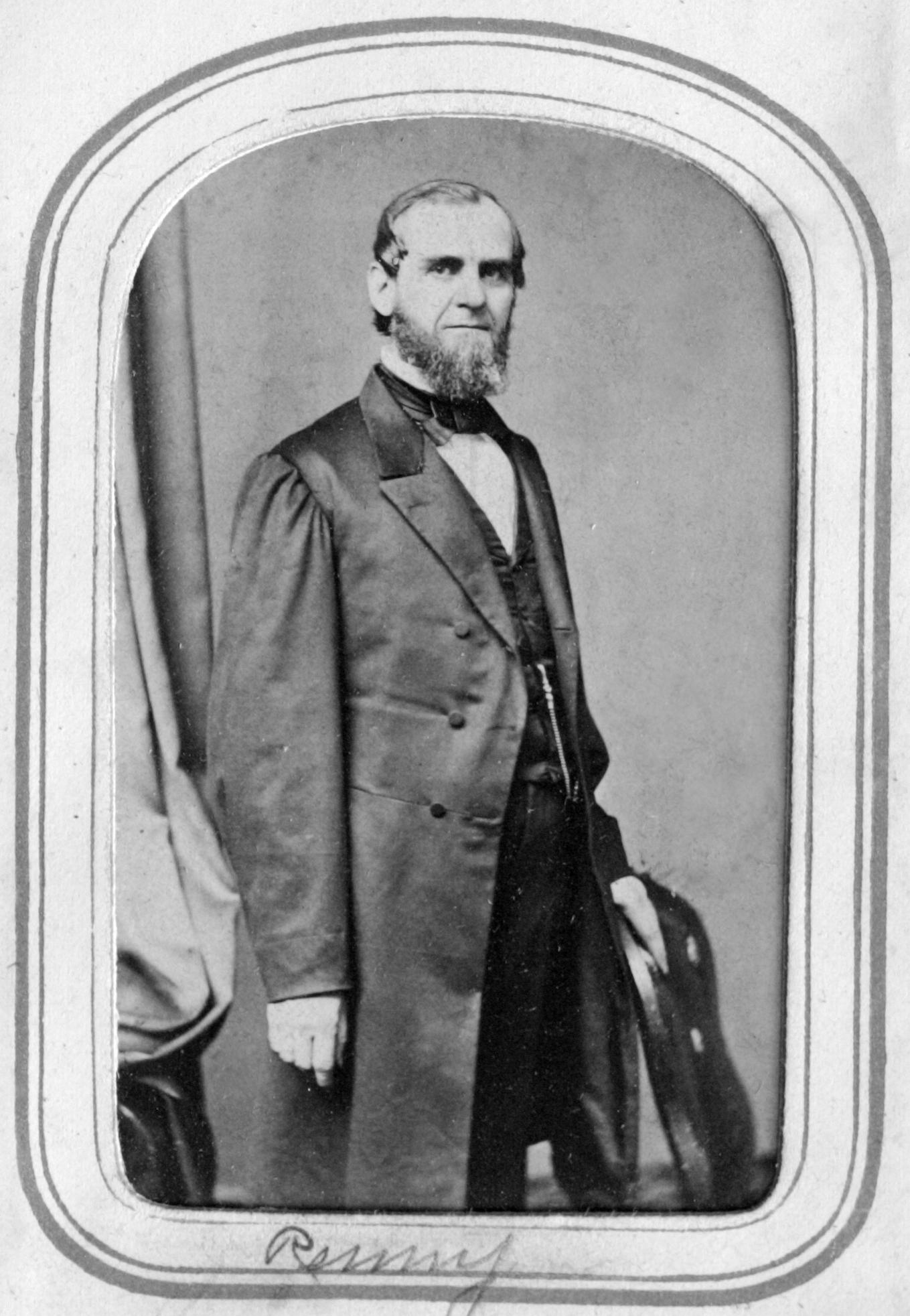Member Biography
John P. Penney Sr.

Penney Portrait, edited from 1874 Constitutional Convention Album, Pennsylvania State Archives, PHMC
Biography
12/15/1817 - 01/04/1873
John P. Penney (R24) Allegheny County, 1859-1864
Early Life:
John P. Penney, born December 15, 1817, McKeesport, Allegheny County, Pennsylvania; son of James and Jane Sill Penney; Jefferson College, 1843; married, Margaret Jane Gilfillan Penney, son, Colonel John Penney, Jr.; tutor, Indiana Academy, 1842-1846; read law, 1847, admitted, Allegheny County bar, 1849-1858; elected, Republican, Pennsylvania Senate, 1859-1864; Speaker, Pennsylvania Senate, 1863-1864; law practice, Pittsburgh, 1865-1873; died, January 4, 1873 (aged 55), Pittsburgh, Allegheny County, Pennsylvania, interment, Allegheny Cemetery Pittsburgh, Allegheny County, Pennsylvania.
Early Career:
Tutor, Indiana Academy, hired by school’s co-founder Judge Thomas White, Senator Harry White’s father, 1842-1846, among his students, future Pennsylvania State Senators Matthew Quay and Harry White. Established, law practice with partner, E.P. Darlington, initiated a new partnership within the year, combining forces with William Sterret, inviting recent Jefferson College graduate Matthew Quay as an understudy, 1849-1858.
Resumed his legal practice, forming another Pittsburgh partnership with past Pennsylvania State Senator and Speaker William George Hawkins, 1865-1873.
Pennsylvania Politics:
Elected, Republican, Pennsylvania State Senate, 24th district, Allegheny County, 1859-1864; Speaker, Pennsylvania State Senate, 1863-1864; chairman Judiciary Committee.
Legacy:
While Senator Penney was Speaker, a problem arose, with Senator Harry White being held prisoner of war by the Confederate Army at Libby Prison deadlocking the Senate and Governor Andrew Curtin fell ill left the country for a brief recuperative trip to Cuba.
While the 1838 charter stipulated a successor in cases of death or a voluntarily vacated seat, it did not provide for a temporary executive in cases of convalescence. With that in mind, an executive veto appeared impossible, and any bill might become law without the governor’s signature after 10 days. Compounding Senate operations problems, Senator John Penney had not received a letter of resignation from Senator Harry White; thus, he remained a legally elected member of the body - the Speaker hoping all along for White’s quick return by prisoner-trade, enabling the legislature to pass critical bills related to the war and the Commonwealth’s internal issues. Curtin eventually returned alive, and White’s official resignation came from Richmond. Senator Penney issued a writ of special election in Indiana County, and Union Party member Thomas St. Clair immediately replaced the incarcerated Senator. The Honorable John Penney returned as the duly elected Speaker on March 8, 1864, and the Senate organized. The situation led directly to the 1874 Constitution’s establishment of the lieutenant governor’s position.
Legacy:
Brother, Thomas Penney, Pennsylvania State House of Representative, 1852.
Son, Colonel John Penney, Jr., became a legend and driving force behind the formation of the modern Pennsylvania National Guard.
Cited:
Cox, Harold. "Senate Members P". Wilkes University Election Statistics Project. Wilkes University.
A Manual for the Government of the Senate and House of Representatives of the Commonwealth of Pennsylvania (1860) Zeigler, J., (Editor) Commonwealth of Pennsylvania, page 289.
John P Penney (1817-1873) - Find a Grave Memorial